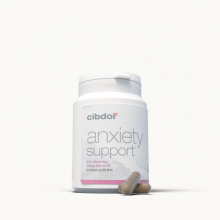Creating a self-care routine
Published:
Life can get busy and stressful, making it easy to neglect taking care of yourself. Establishing a consistent self-care routine can help you reduce stress, increase energy levels, improve focus, and feel more balanced overall. This comprehensive guide will walk you through how to create a self-care routine tailored to your needs.
Contents:
The Importance of Self-Care
Practicing self-care simply means taking time to do things that nourish you physically, mentally, and emotionally. Self-care helps you refuel so you can be your best self. The demands of work, family, relationships, and other obligations can drain your tank if it's not regularly replenished.
Consistent self-care provides numerous benefits including:
- Reduced stress and anxiety
- Increased happiness and life satisfaction
- More energy and improved focus
- Strengthened immune system and overall health
- Improved self-esteem and confidence
- Increased productivity and creativity
- Enhanced sense of purpose and meaning
Without adequate self-care, you’re more likely to experience burnout, exhaustion, irritation, and reduced joy in life. Set aside time for activities that provide calm, comfort, pleasure, and renewal. Think of it as pressing pause to nourish your mind, body, and spirit.
Components of a Self-Care Routine
An effective self-care routine incorporates activities from four key areas:
Physical self-care - Activities that support your physical health like getting enough sleep, eating healthy foods, exercising, and going to medical appointments.
Psychological self-care - Activities that nourish your mind like practicing mindfulness, journaling, reading books, taking a social media break, and saying no to unwanted obligations.
Emotional self-care - Activities that fulfill you spiritually and creatively like spending time in nature, listening to music, making art, laughing, and connecting with others.
Professional self-care - Activities that reduce job-related stress like taking breaks throughout the day, setting boundaries with coworkers, and not answering work emails after hours.
Aim to include one or more activities from each category into your routine.
Creating Your Self-Care Routine
Follow these steps to design a self-care routine that sticks:
Step 1: Identify Your Needs
Start by reflecting on your current challenges and stressors. Make a list of ways you want to feel - for example, calm, rested, connected, creative, centered, etc. Then consider what activities will help you experience those feelings. If you're not sure, experiment with different self-care activities and pay attention to how they affect your mood.
Step 2: Set Self-Care Goals
Develop realistic and specific self-care goals like:
- Get 7-8 hours of sleep per night
- Eat 2-3 nutritious meals per day
- Take a 10 minute meditation break each morning
- Limit social media to 30 minutes a day
- Spend 30 minutes outside 3 times per week
Choose manageable goals you can stick to long term. You don't need to overhaul everything at once. Small consistent actions lead to lasting change.
Step 3: Schedule Self-Care Into Your Day
Planning self-care activities into your calendar increases the likelihood you’ll follow through. Treat self-care appointments with the same importance you give work meetings or appointments. Schedule specific blocks of time for your chosen activities.
Distribute them throughout the week, not just weekends. Consistency is key. Also identify the time of day you have the most energy and motivation for certain activities like exercise, journaling, etc.
Step 4: Create Reminders and Accountability
It's easy to forget self-care plans when life gets busy. Set phone alarms or calendar reminders for your scheduled activities. Tell a friend or family member about your routine and ask them to check in on your progress. Having someone hold you accountable boosts motivation.
Step 5: Observe How You Feel
Pay attention to how your mind, body, and emotions feel after incorporating self-care practices. Do you have more energy? Feel less stressed? Sleep better? Pinpoint which specific activities are most nourishing so you can do more of them.
Step 6: Adapt and Modify
It's normal for your self-care needs to change over time. Certain activities may not resonate anymore. New challenges may arise that require additional support. Re-evaluate your routine frequently and adjust activities as needed.
Be flexible and willing to try new self-care approaches to find what works best. It’s about the process, not perfection.
Sample Self-Care Activity Ideas
Here are examples of self-care activities to try:
Physical
- Take a warm bath
- Walk outside
- Stretch or do yoga
- Dance
- Get a massage
- Take a nap
- Go to your annual check-ups
Psychological
- Meditate or practice deep breathing
- Write in a journal
- Read an inspiring book
- Listen to uplifting music or podcasts
- Do something creative like art, crafting, or DIY projects
- Spend time learning something new
- Turn off electronics for blocks of time
- Say no to unwanted obligations
Emotional
- Spend time with positive loved ones
- Cuddle a pet
- Get out in nature
- Listen to your favorite music or watch a comedy
- Practice gratitude
- Do volunteer work
- Try a new hobby that sparks joy
Professional
- Take all your paid time off
- Set boundaries with coworkers
- Make your workspace more ergonomic and relaxing
- Take regular breaks during the workday
- Identify what projects energize you and do more of those
- Have lunch outside the office
- Leave work at work and detach in the evenings and weekends
Making Self-Care a Lifelong Habit
The most important thing is to experiment and find what self-care practices work best for your unique needs and schedule. Be patient as you build the routines into your life. It takes time for new habits to stick. But the effort is well worth it for the benefits you’ll gain.
Here are some final tips for making self-care an ongoing habit:
- Start small - Add one new self-care activity at a time until it becomes automatic before adding more. Small steps create lasting change.
- Schedule it - Mark self-care activities in your calendar and treat them like appointments to increase follow-through. Plan ahead.
- Link it to an existing habit - Connect a new self-care habit to a current habit to reinforce it, like meditating right after your morning coffee.
- Replace, don’t add - If you’re very busy, swap an existing habit for a new self-care activity instead of adding more to your plate.
- Expect setbacks - There will be ups and downs. Don’t beat yourself up or give up completely if you skip self-care some days. Just get back on track the next day. Progress not perfection is key.
- Involve others - Enlist friends and family to join you in healthy activities and provide mutual accountability and encouragement.
- Be consistent - Make self-care a priority you practice consistently, not just when you have the time or feel like it. Consistency is key to forming habits.
- Track it - Note self-care activities in a journal or app to monitor progress and see the positive effects accumulate.
- Tweak as needed - Check in periodically to assess if your routine needs updating based on life circumstances, energy levels, enjoyment, and results.
Nourishing yourself through a self-care routine allows you to show up as your best self for others and live a more balanced, meaningful life. The time investment is well worth it. With some trial and error, you’ll find the specific rituals that work for you. The positive benefits will start compounding as self-care becomes second nature.
Conclusion
Creating a consistent self-care routine with activities you genuinely enjoy is one of the best things you can do for your overall wellbeing. Follow the steps to identify your needs, set self-care goals, schedule activities into your day, create reminders, observe the benefits, and adapt your approach when necessary. Make self-care a lifelong habit by starting small, linking it to existing routines, involving others, staying consistent, tracking your progress, and regularly tweaking your routine. When you take care of yourself, you’ll be healthier, happier, and better equipped to care for others. You’re worth the investment in yourself.
Resources used to write this article
American Psychological Association. (2022). Building your self-care routine. Retrieved from https://www.apa.org/topics/self-care
Cherry, K. (2020). The importance of self-care. Verywell Mind. Retrieved from https://www.verywellmind.com/the-importance-of-self-care-3145067
HelpGuide. (2022). The mental health benefits of self-care. Retrieved from https://www.helpguide.org/articles/mental-health/the-mental-health-benefits-of-self-care.htm
Mind Body Green. (2021). How to build a self-care routine you’ll actually stick to. Retrieved from https://www.mindbodygreen.com/articles/how-to-build-a-self-care-routine
National Institutes of Health. (2021). Building a self-care plan. Retrieved from https://www.nih.gov/health-information/self-care-plans
Smith, M. & Segal, J. (2022). The importance of self-care. HelpGuide. Retrieved from https://www.helpguide.org/articles/stress/the-importance-of-self-care.htm














